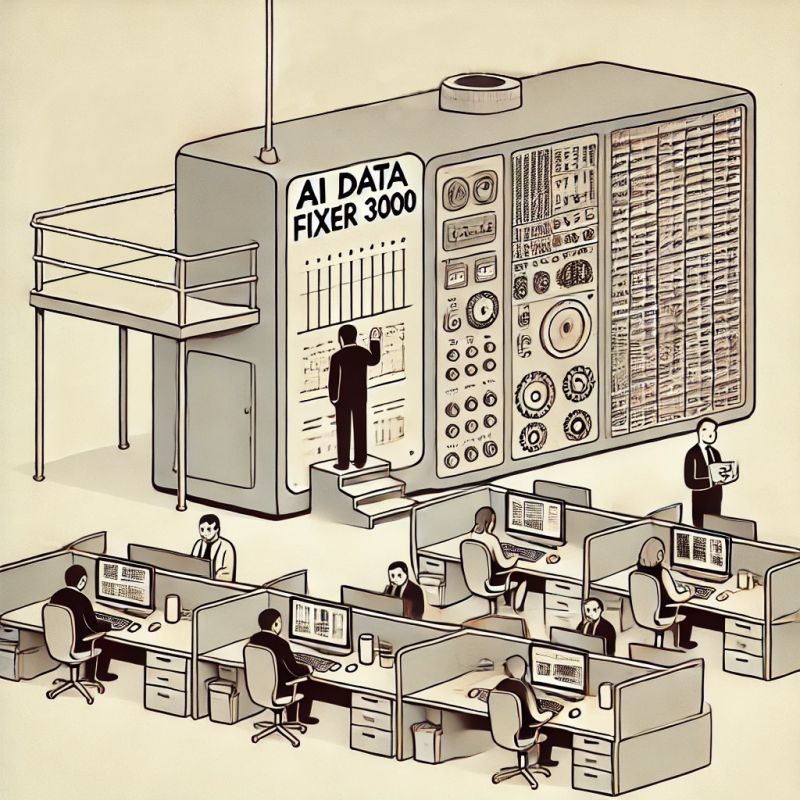Most data problems aren't technology problems. They're people problems. But many companies miss that entirely.
Businesses today pour millions into advanced data platforms, data ecosystems, and data management tools, hoping they will solve their data headaches. And yet they rarely do. Why? Because the biggest challenges in turning data into value don’t stem from a shortage of fancy tools. They stem from organizational misalignment and a lack of data-centric culture.
Consider data quality: The best CRM (please tell me if you’ve found it!) won't stop a salesperson from rushing their inputs to make their data entry KPIs. It also won’t make marketing and finance agree on who counts as a "customer". The issue isn't software—it's siloed teams following different rules.
The same story holds for data governance. You can implement all the AI-enabled catalogs and management platforms your budget allows, but without your organization understanding and caring about proper data handling, they're just expensive guardrails. Governance is about culture, not code. And culture can't be fixed by throwing more tech at it—no matter how much your IT vendors may insist otherwise.
So why do so many companies approach data issues as technical challenges? Because it's easier. Buying tech feels like progress. But real progress lies where things get tough, such as building a culture where data is not only called a strategic asset, but actually treated as such.
Data winners recognize that tech is only a tool and it’s people that make the difference. This starts with leadership (aligning teams, breaking silos, and driving top-down buy-in) and ultimately affects the entire company, not just the IT and data departments.
So to fix your data problems, focus on people and culture. That means serious commitment and investments into training, alignment, and fostering a culture of data-driven decisions. Data problems aren't solved in the cloud, but in conference rooms and tough conversations.
